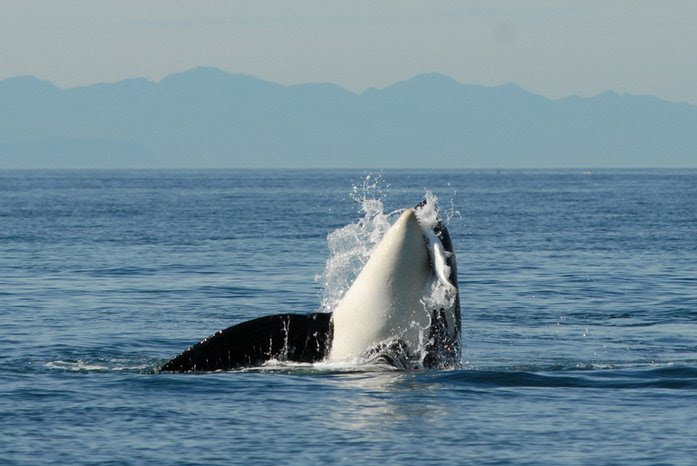
The Centre for Whale Research, an institute that studies the Southern Resident Killer Whales (SRKW) in the Pacific Northwest, has purchased salmon spawning grounds in Washington with the hope of restoring the fish population to help save the orcas.
In a press release issued on Tuesday, the research institute revealed that it had purchased a 45-acre ranch back in October.
The ranch straddles the Elwha River in Washington State in an area where a majority of the remnant native Chinook salmon now spawn, the release states.
The Centre for Whale Research has renamed the property BIG SALMON Ranch and is anticipating that the Chinook in the area may reach a historical population level in the future.
“The one bright spot that we can see in the Chinook salmon issue resides in the Elwha River ecosystem. Demolition of two obsolete hydroelectric dams that blocked salmon from the headwaters and historical salmon spawning ‘grounds’ was completed in 2014. The salmon are coming back in greater numbers each year, and in twenty more years, they may reach historical population levels,” said Ken Balcomb, CWR Founder and Senior Scientist, in a statement.
“Restore the ecosystem, and the salmon will recover, is the message. Un-build it, and they will come. It is a good story that saves the fish and us from beating our heads against an entrenched political and economic system that ignores ecological reality. We decided to champion a good example as a model for other river ecosystems that can ultimately provide food for the whales [Southern Resident orcas].”
According to the Centre for Whale Research, the Chinook salmon abundance from the Elwha River ecosystem can provide a healthy food source for the Southern Resident orcas and “a sustainable, nearshore artisanal fishery in the Strait.”
The Elwha River begins in Olympic National Park and flows directly into the Strait of Juan de Fuca.
“The approximately 7,400 Chinook that recently returned to the Elwha created roughly 900 “redds,” each of which contained about 5,000 fertilized eggs. Optimally, over 4,000,000 baby Chinook “smolts” will be produced by the Elwha. By 2024, this could result in 80,000-250,000 returning adult Chinook salmon for the whales and ocean fishers to catch,” adds Balcomb.
Balcomb says that fish recovery and management has not been a priority for political leaders, which has created a major issue for the SRKW population.
“It is disingenuous for political leaders to state that the Southern Resident orcas’ extinction will not be tolerated while at the same time bowing to interests and continuing practices that make their survival impossible. The orcas must eat to survive, just like people,” notes Balcomb.
The Centre for Whale Research proposes to keep this Elwha ecosystem habitat undisturbed in hopes of restoring the Chinook population to pre-damn levels.

An aerial view of BIG SALMON Ranch, located along the Elwha River in Washington State.




